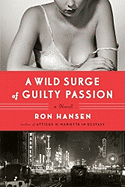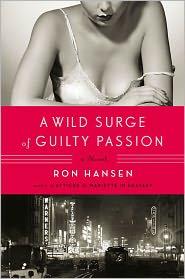

When she meets handsome, alcoholic lingerie salesman Henry Judd Gray in June 1925, Ruth Snyder is a bored Queens housewife married to a man 13 years her senior whose love of homebrewing and sailing surpasses any passion for her. It doesn't take long for the vain, shallow duo to tumble into a torrid affair, sharing more than 50 nights in a Waldorf Astoria room. After a few months, Ruth lays the groundwork for their future financial security by tricking her husband into applying for an insurance policy that will pay double indemnity--nearly 20 times his annual income--in the event of a death from other than natural causes.
In an age more tolerant of divorce, Ruth and Judd would have abandoned their respective spouses and children to start a new life together. Instead, as Hansen describes it with psychological acuity and ample detail, their mutual infatuation quickly curdles into a murderous plot. After Albert Snyder demonstrates a Rasputin-like quality to survive several of Ruth's bungled murder attempts (poisoning and carbon monoxide among them), she urges the weaker Judd to bludgeon her husband as he sleeps and attempt to conceal the deed as a burglary. The killing is as inept as the lovers' intensity is strong, and within hours their flimsy stories, including Judd's elaborately constructed alibi, crumble. Barely a month later, they're on trial for their lives, turning on each other with the same alacrity that marked the start of their affair.
Despite the moral failings of his protagonists, Hansen takes pains to present the story as something other than a morality play. Especially appealing is his deft conjuring of the period F. Scott Fitzgerald called the "Jazz Age." As Hansen portrays that era, it was a time when "wealth began to seem available to anyone." Ruth Snyder and Judd Gray, in this retelling of their sordid story, were two characters whose tragic flaw was the self-delusion that led them to believe the easy riches of the time were theirs for the taking.--Harvey Freedenberg
Shelf Talker: Veteran novelist Ron Hansen offers a lively retelling of a notorious murder in Prohibition-era New York City.

